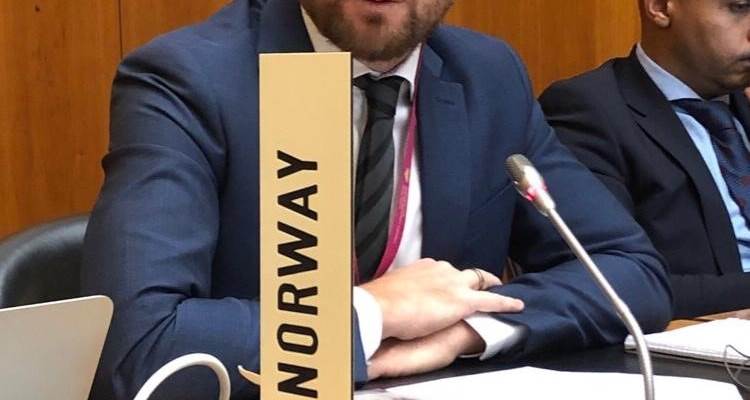21.11.2018
Delivered by First Secretary Christian Groseth
Madam Chair,
At the last meeting of the Dispute Settlement Body on 29 October 2018, Norway requested the establishment of a panel in this dispute regarding the United States’ additional tariffs on certain steel and aluminium products of 25% and 10% respectively.
At that meeting, Norway outlined some important points related to the dispute, which I will not repeat here today. It is, however, Norway’s firm view that the additional tariffs are inconsistent with the United States’ WTO obligations, in particular under the Agreement on Safeguards. We would also like to stress that, like in any other sector, concerns which any Member of the WTO has with respect to the economic conditions in its steel and aluminium industries must be addressed through measures compatible with the WTO Agreement.
At the DSB meeting on 29 October, the United States held that because Article XXI of the GATT 1994 has been invoked, “there is no basis for a WTO panel to review the claims of breach raised by Norway[, n]or is there any basis for a WTO panel to review the invocation of Article XXI by the United States”. In the following, I will explain why such arguments must be rejected.
The United States’ position is not supported by the DSU. Article 1.1 of the DSU provides that all the multilateral agreements on trade in goods are included as “covered agreements”. No provision – including Article XXI of the GATT 1994 – is “carved-out” from the compulsory jurisdiction to which the Members have agreed.
Article 3 of the DSU provides that the dispute settlement system “is a central element in providing security and predictability to the multilateral trading system”, and is “essential to the effective functioning of the WTO and the maintenance of a proper balance between the rights and obligations of Members”. The United States cannot, consistent with these principles, unilaterally exclude disputes from a WTO panel’s jurisdiction.
If a Member’s mere invocation of a “national security” defense rendered a claim non-justiciable, this would allow easy circumvention of WTO obligations. A respondent could, in theory, allege justification of a variety of protectionist interests under the guise of national security, and thereby avoid scrutiny of its WTO obligations altogether. An interpretation of Article XXI of the GATT 1994 to this effect would render all the obligations therein effectively unenforceable.
Excluding this dispute from WTO review simply because the US invokes Article XXI would, therefore, impermissibly “diminish” Norway’s right under Article 23.1 of the DSU to “seek the redress of a violation”.
Article XXI of the GATT 1994 is an affirmative defense to a claim of WTO-inconsistency, which the United States may invoke in dispute settlement before a WTO panel. If the United States chooses to do so, it bears the burden of demonstrating that its measures are, indeed, justified under this provision.
While Norway appreciates that matters of national security are sensitive, Norway is confident that, using the usual procedures set out in the DSU and other covered agreements, WTO panels are well-equipped to assess whether the United States has adequately demonstrated that its measures are justified under Article XXI. As noted, this is not, after all, the first sensitive dispute to come to the WTO. Indeed, Norway values the WTO dispute settlement system precisely because of its tried and tested ability to handle sensitive disputes.
Norway therefore requests once again that a panel be established with standard terms of reference. Like other co-complainants and in reference to Article 9.1 of the DSU, Norway refers to the fact that nine requests for the establishment of a panel, seven of these for the second time, are brought today in relation to the same US measures on imports of steel and aluminium. As all of these requests are related to the same matter, Norway requests the establishment of a single panel.
Thank you.
